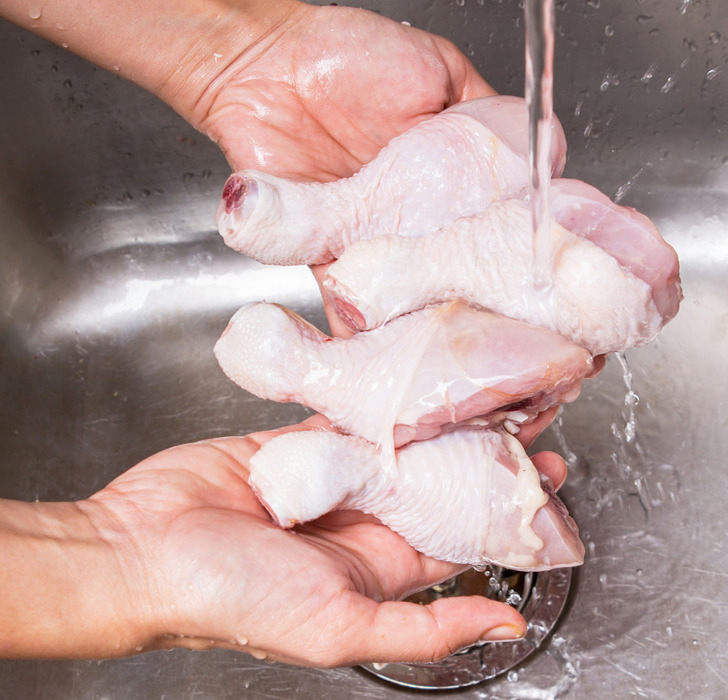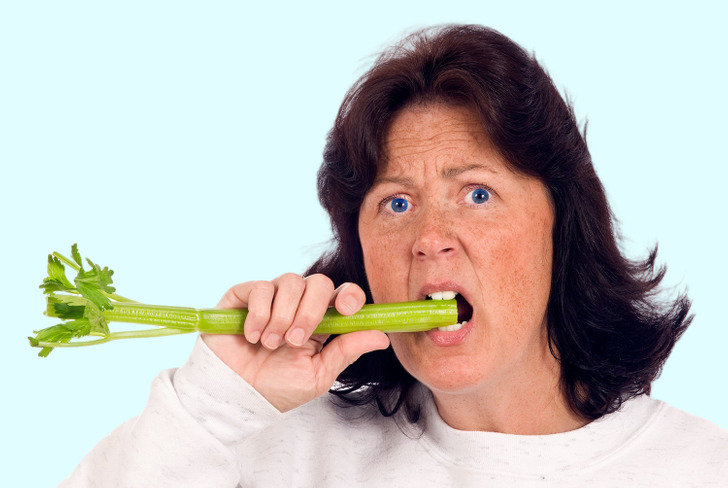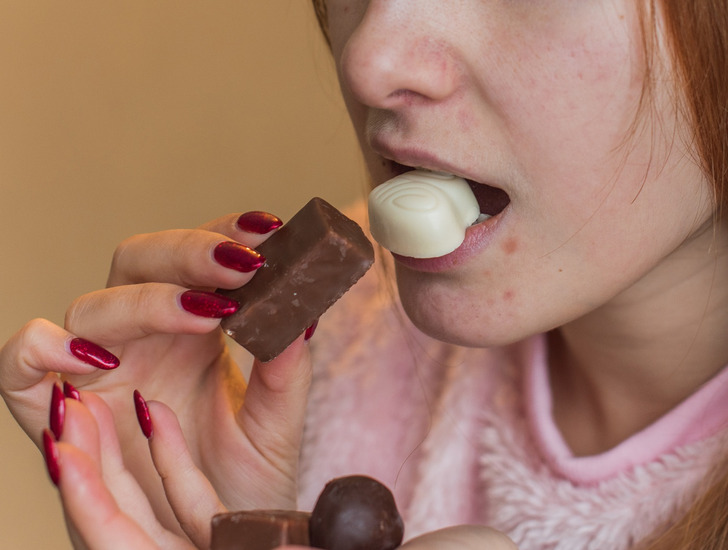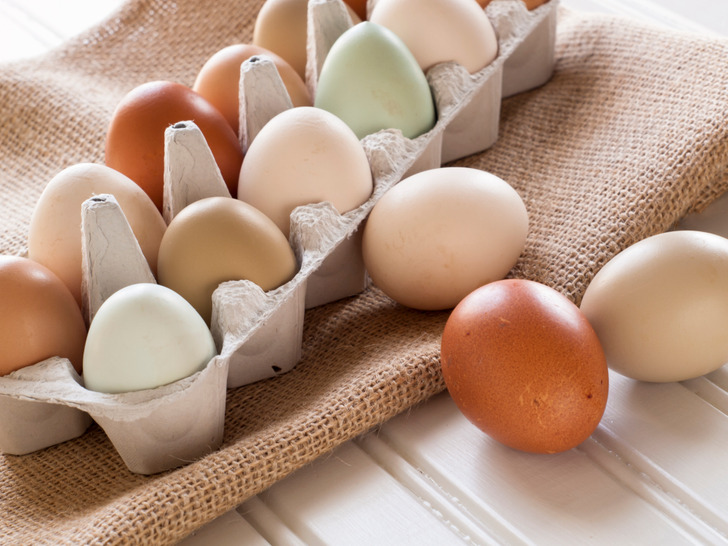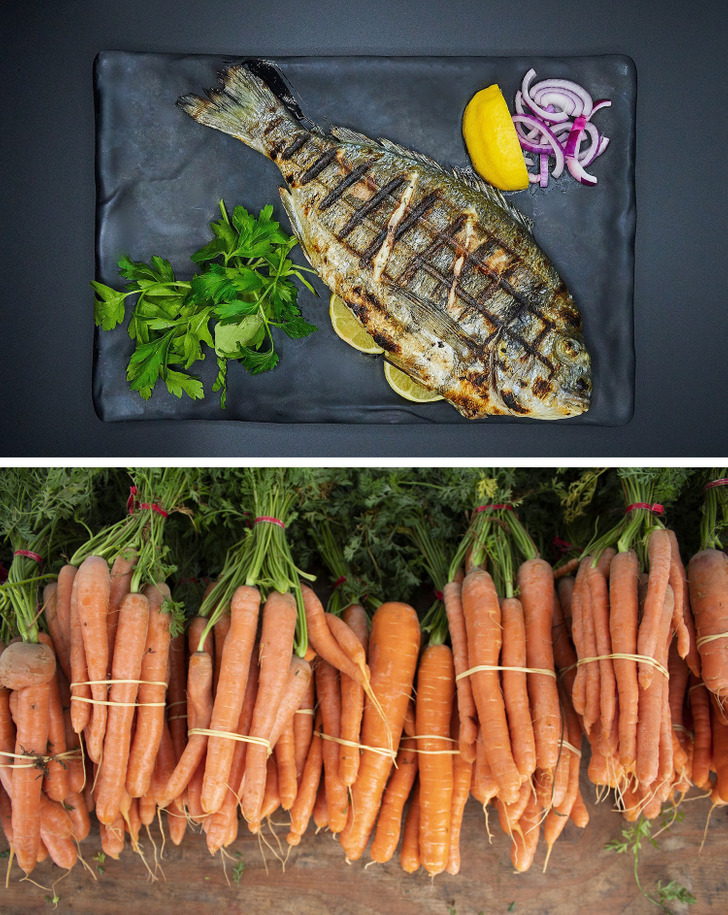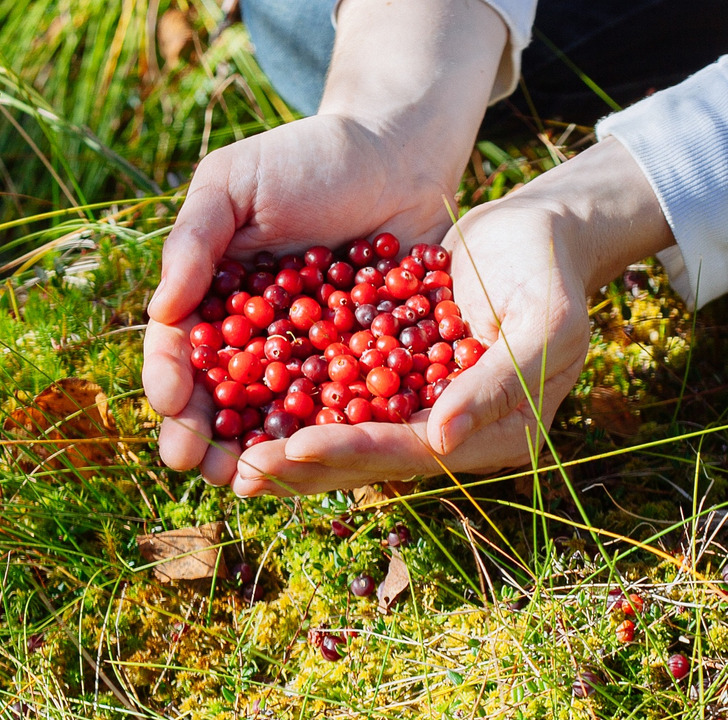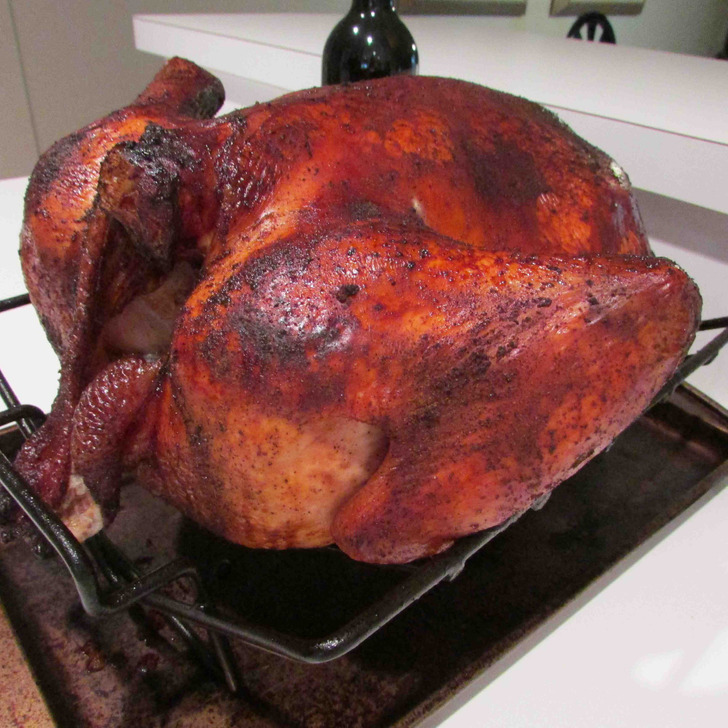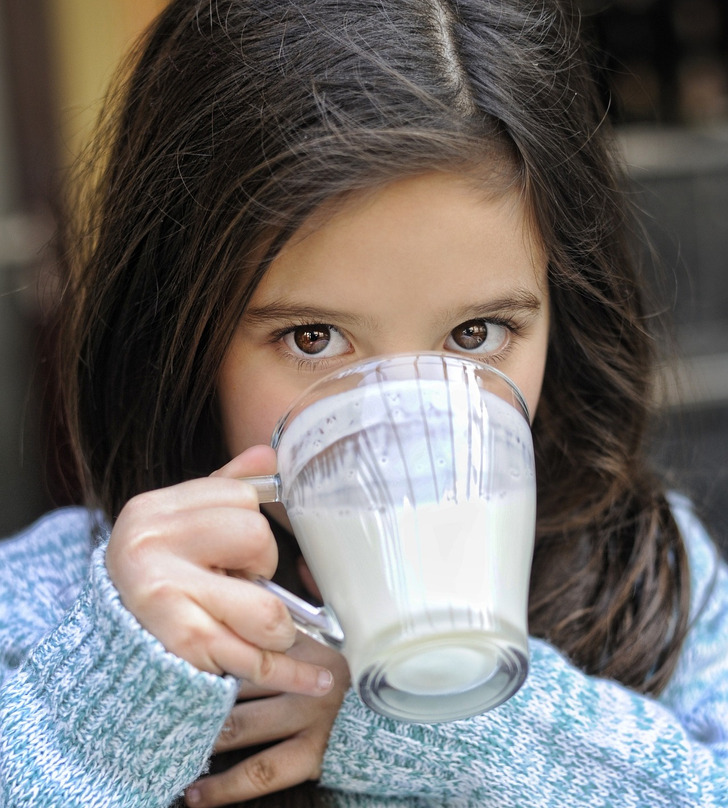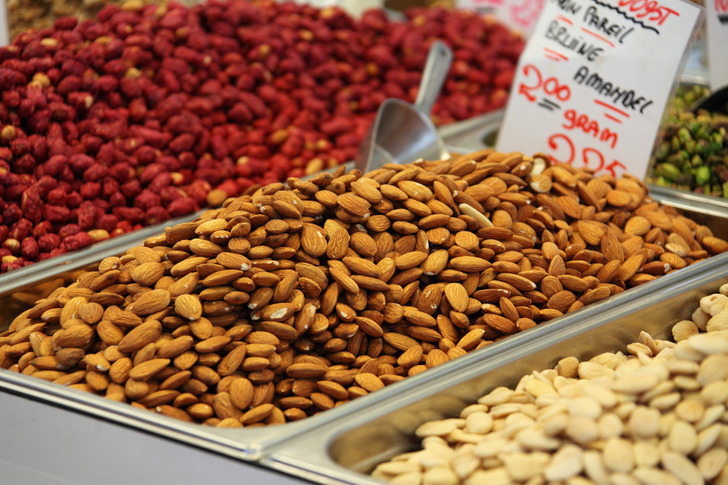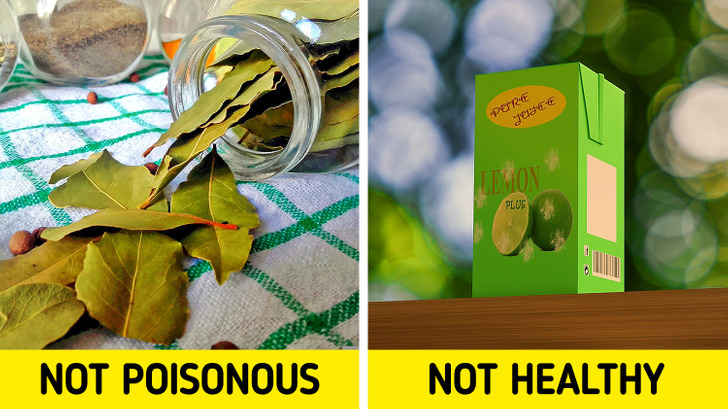Sugar does in fact cause acne; You don't need scientific proof. Eat nothing but junk for a week and see what happens to your skin, then eat extremely healthy for a week or so, and see the recovery.
12 Popular Beliefs About Food That You Ought to Stop Following
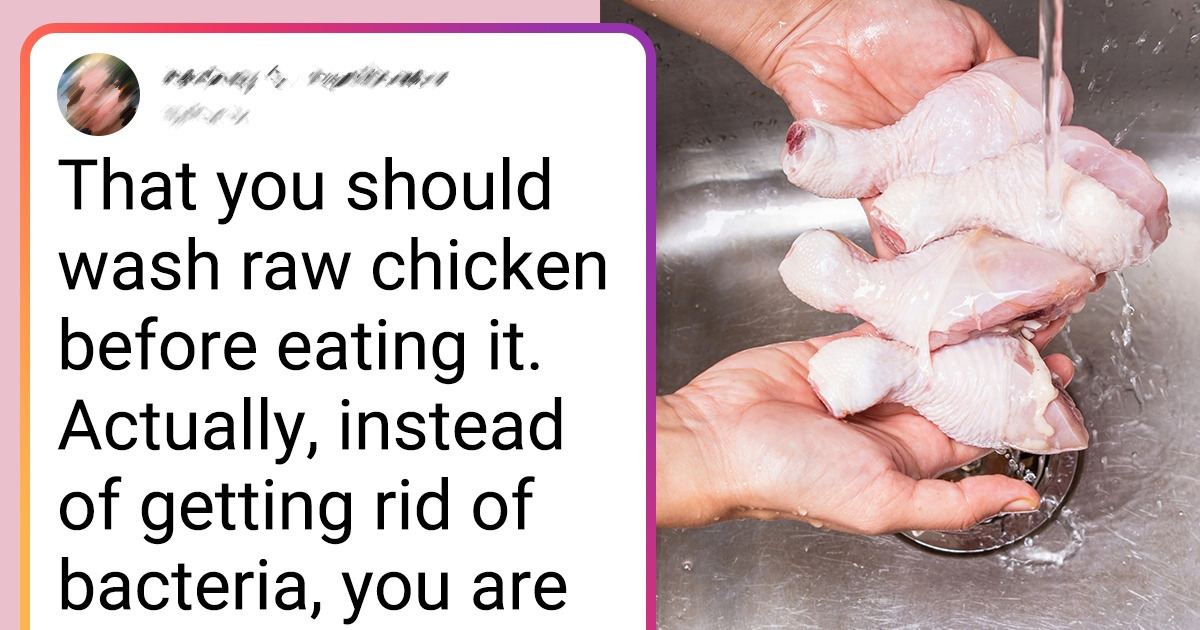
There have been many myths and misconceptions about food and diet that we’ve all been familiar with since we were kids. However, as years go by, science keeps busting more and more of them. But this doesn’t mean that everyone is aware of these myths — unless they are scientists keeping track of all the new studies. That’s why we decided to look around and see which of these misconceptions are still quite popular.
1. You need to wash raw chicken.
This is a very old myth that, unfortunately, many people still believe and practice to this day. However, the CDC keeps reminding people that washing raw chicken will only spread more bacteria from the chicken to other foods or utensils. Just by cooking the chicken thoroughly, all germs and bacteria will be killed. Also, it’s important to wash your hands after working with poultry and use a different cutting board for other types of food to avoid cross-contamination.
2. Celery burns calories.
For a long time, people have believed that some foods are calorie-negative, which means that the more you eat, the more calories you lose. However, this concept on its own is a lie, which means that celery doesn’t burn calories. It is, indeed, healthy, as it contains a lot of vitamin C, potassium, fiber, and, of course, water.
Remember that our bodies need calories in order to function and produce energy. Not only that, but our bodies burn about 10% of their daily intake through digestion and absorption.
3. Eating chocolate can cause acne.
Let’s start by saying that there is absolutely no evidence or studies about how chocolate causes acne. Of course, it’s not only the cocoa beans that are inside chocolate but also sugar, and again, there is no concrete evidence to prove that sugar causes acne either. Even if a pimple appears after eating chocolate, it’s probably a coincidence and something triggered it. Some proven culprits for acne are sodium-rich food, carbonated sodas, and, as of most recently, low-fat and skim-dairy products.
4. Brown eggs are better than white eggs.
The reason we have different-colored eggs is due to the different breeds of chickens that lay them. Apart from white and brown eggs, some breeds of chickens, such as the Araucana and Lushi, lay blue or blue-green eggs. Also, a hen’s environment, diet, and level of stress can also play a role in the color of the eggshells. No matter the size and color of the egg, all of them have just about the same level of nutrition.
Studies that compared brown and white eggs didn’t find any differences in their composition or quality. What does play a role in the quality of an egg is the environment in which a chicken is raised. If they are free to run around and get time under the sun, their eggs will probably be tastier.
5. Drinking coffee can stop your kid’s bone growth.
Many years ago, people believed that drinking coffee would eliminate the calcium from your body and, therefore, lead to osteoporosis. As you can imagine, this rumor caused a lot of worry among people, especially regarding their kids who were still growing. We should take into consideration that people don’t start drinking coffee regularly until their early adulthood and late teenage years. Their growth has most probably reached its full potential by that point, so coffee will in no way stop it.
Even if little kids were to have a few sips of coffee here and there, this wouldn’t stand in the way of their growth or height. Genes, overall health, and a good diet are the main factors contributing to how tall a kid will become.
6. Fish and carrots will improve your eyesight.
The fact that fish can improve your eyesight is purely a myth, but what is true is that the omega-3 fatty acids in them might help in older age. More particularly, a study showed that people who consumed at least 2 servings of fish per week had a 39% less chance of getting diagnosed with age-related muscular degeneration. It’s easy to take this piece of evidence and turn it into something else. The reality is that fish is beneficial to you, but it will not magically improve your eyesight.
Jumping over to carrots, the idea that they can improve eyesight was created during the ’30s and ’40s as part of a propaganda campaign. This doesn’t mean that they are not good for your eyes, as they actually do contain beta-carotene and lutein. These 2 antioxidants can help to prevent eye damage caused by free radicals.
7. Cranberries cure UTIs.
Although cranberries are delicious to eat or drink as a juice, they can’t treat something as painful as a UTI. There just isn’t enough scientific evidence to show if they actually cure this infection. There is a potential ability to decrease the severity of the symptoms, but it’s not clear if they can completely cure it. Also, there is no data to show either the quantity of the cranberries or the duration of the therapy that should be followed.
8. Turkey causes drowsiness.
Yes, turkey contains L-tryptophan, which is an amino acid that is often connected with sleep. But this by itself isn’t enough to cause the production of serotonin that is needed in order for you to go to sleep. So it’s not the turkey that makes you sleepy after a rich Thanksgiving meal, but rather, the combination of all the carbs you consume. Potatoes, rice, bread, and pie are all full of carbs, and the big amounts that you consume are naturally causing you to want to take a long nap.
9. Milk builds stronger bones.
Drinking 1 glass of milk per day can be beneficial since it offers you the calcium that your body needs. However, more is not better with milk, since consuming 3-4 glasses a day has been found to increase the risk of bone and hip fractures. Not only that, but the same study found that women who drank 3-4 glasses daily had double the mortality rate than women who only drank less than 1 glass per day. An additional study also showed that the consumption of milk doesn’t necessarily lower the risk of osteoporosis.
10. Egg yolks increase your cholesterol levels.
Many people believe that eating the yolk in eggs will increase their cholesterol levels, but there isn’t enough evidence to prove that. Yes, egg yolks are high in cholesterol, but it’s not enough to raise your blood’s cholesterol levels. Foods that are high in trans fats and saturated fats are more to blame for this problem. In fact, a healthy person could eat 7 eggs per week and still have no issue with their cholesterol or their heart.
Even if your cholesterol level is a bit high, eating 1 egg per day, preferably boiled, won’t cause you any harm. If your daily cholesterol intake should be at 300 mg, a big egg contains 186 mg, and the egg white doesn’t have any.
11. All low-fat products are healthy.
Just because something is marketed as low-fat doesn’t mean that it’s healthier than its full-fat counterpart. For example, low-fat sweetened cereal contains tons of added sugar or fructose in order to reach the same level of taste. Also, products like low-fat yogurt, salad dressing, peanut butter, and frozen yogurt are loaded with sugar as well. The bottom line is that most products that are low in fat are much higher in added sugar and all its forms.
12. Eating nuts will make you fat.
It’s true that nuts have quite a lot of calories, but the fats in them are very beneficial for you, and they certainly don’t lead to weight gain, with more than 20 years of research to back this up. On the contrary, nuts help you keep your weight in check since they fill you up faster and keep you feeling full for longer. Also, you should know that both raw and roasted nuts have the same nutritional value.
What you might want to stay away from is nuts that are salted or covered in different sugary coatings. The suggested daily intake is 30 grams, which equates to 20 almonds, 15 cashews, or 30 pistachios.
Bonus: even more myths revealed by internet users
- That all fats are unhealthy. Sabertooth472 / Reddit
- “Raw egg will give you salmonella.” As a kid, I was taught to avoid raw eggs at all costs because they WILL give me salmonella and poison me. I learned though that it’s fairly rare but possible to get salmonella from raw eggs, but eating a runny yolk in a poached egg or something is perfectly fine. I still wouldn’t eat raw cookie batter though because raw flour can contain some germs. thelilbel / Reddit
- Gluten is bad for your health and will make you fat (nope, it’s just an allergen for some people who can’t digest gluten properly). TimDuncanCanDunk / Reddit
- Just because something has an expiry date doesn’t mean it’s bad the day after. ABenn14 / Reddit
- Fruit juices or apple juice are “healthy.” They are basically sugar water. They may have their place, but shouldn’t be seen as a healthy alternative to water. TheSpeedyspikes / Reddit
- My mom was adamant that cabbage was the cure for acne. As an acne and anxiety-riddled teenager, it was really useful in further isolating me from any sort of positive interaction with the other kids at school because no one wanted to hang around with the weird kid with the pizza face and who absolutely reeked of rotten cabbage. ImSigmundFraud / Reddit
- That bay leaves were poisonous to eat but fine to flavor things so long as you take them out. Still surprised I ever believed it. Tilly_tallwater / Reddit
How many of the myths mentioned above did you still believe to be true before reading the article?
Comments
Related Reads
10 Times a Moment of Pure Cruelty Was Actually a Secret Act of Kindness

12 Heart-Touching Moments That Remind Us Workplace Loyalty and Empathy Don’t Pay the Bills

14 People Who Just Went With the Flow and Ended Up With a Story Worth Telling

I Refuse to Talk to My Friends After They Tricked Me Into Eating Meat—I’m Vegan
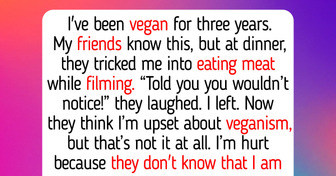
12 Stories That Prove Kindness Is the Strongest Armor
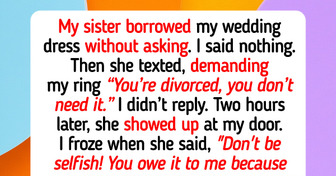
I Refuse to Keep Visiting My Husband’s Family—I’m the Breadwinner, Not Him

I Refused to Let a 5 Y.O. Attend My Daughter’s Party—Now They Say I’m Cruel

I Turned Down a Promotion and Got Fired—My Revenge Was Brutal

I Refuse to Earn Pennies While My Manager Cashes a Fortune

14 Quite Acts of Kindness That Changed Someone’s Life Forever

10 Times Kids Spilled Family Secrets and Shocked the Entire Room

14 Neighbors Who Turned Life Into a Comedy Show Without Even Trying

